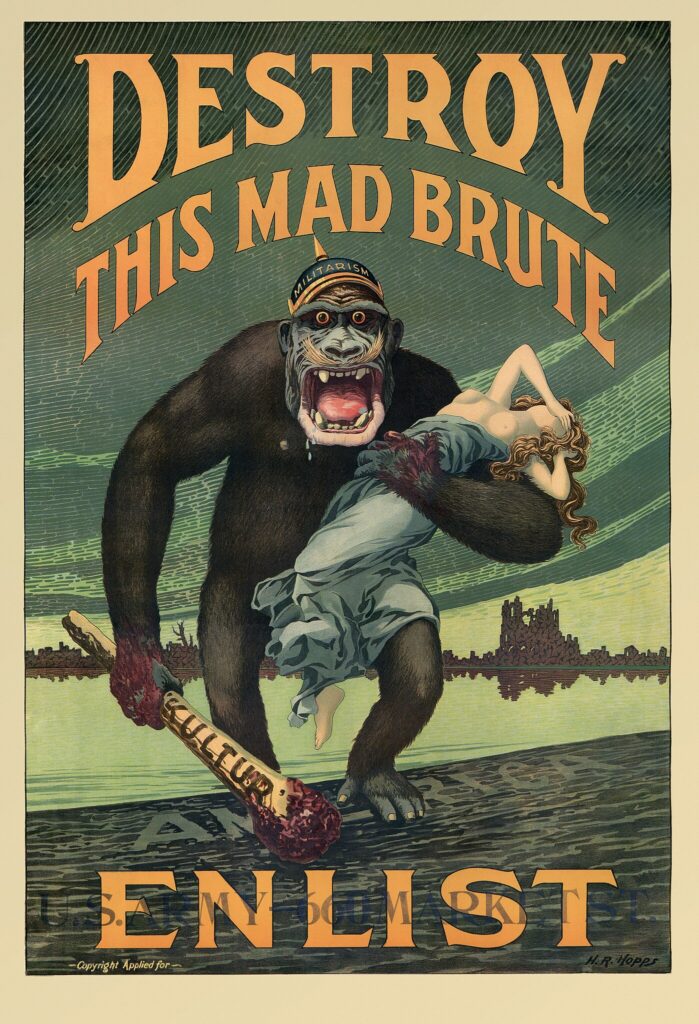“What is wrong with black people?” These are the first words spoken in “Stamped from the Beginning,” a new Netflix “documentary.” The film was adapted from the bestseller, Stamped from the Beginning: The Definitive History of Racist Ideas in America, by self-proclaimed antiracist “intellectual” Ibram X. Kendi.
Directed by Roger Ross Williams, who helmed Hulu’s adaptation of “The 1619 Project,” the film is a whirlwind tour through six centuries of racism to trace the origins of “anti-blackness.” It has received fawning praise from the media, which have lauded it as “heart-poundingly persuasive,” “radical,” and “well-paced and affecting.” It is not shocking that it earned such acclaim from the leftist press, nor that Netflix greenlit the feature. What is shocking, however, is how genuinely terrible the end product is.
Radical Black Women Only
There is a plethora of issues with the film, starting with the experts chosen to provide commentary. Kendi himself is the primary narrator, but he is joined by an all-star cast of hard-left activists and professors — all black women. Williams stated in interviews that this was deliberately meant to reinforce the message of the film. He decided to “only use Black women”: “Black women were always the forefront of the resistance movement and, in my eyes, never get their due.”
Reviewers have praised the talking heads as “speak[ing] with a bracing candour unlikely to be found on PBS or the BBC.” This includes such lines as, “Thomas Jefferson was full of sh-t,” and, “When Prince Henry rode up on Africa,” which certainly don’t bolster the historical claims made.
The roster of commentators includes such luminaries as Dorothy Roberts, Imani Perry, Elizabeth Hinton, Lynae Vanee, Brittany Packnett Cunningham, Honorée Fanonne Jeffers, Brittney Cooper, Carol Anderson, Cori Bush, and, most importantly, Angela Davis, the grande dame of antiracist advocacy. Together, these women count more than a dozen graduate degrees, an even higher number of books, two candidacies for vice president, and multiple criminal charges related to terrorism. The last two accolades belong to Davis — including the VP nominations for the Communist Party — but one shouldn’t give short shrift to her younger compatriots.
They have argued that “strengthening white supremacy starts in the classroom”; that criticism of Kamala Harris is “blatant misogynoir”; that “the inextricable entanglement of reproductive servitude, incarceration & family separation is foundational to white supremacy and racial capitalism, starting in slavery and continuing to this very day”; and that “seeing white folks walk their pit bulls makes me go to a frightened ancestral place” — all in the last six months. What these women lack in tact, they certainly don’t make up for in objectivity.
The patent partiality of the presenters is just one of the flaws with “Stamped from the Beginning.”
Lies, Errors, and Distortions
For a film presented as a straight historical documentary telling the real truth about anti-blackness, it is chock-full of factual errors, historical misrepresentations, and deliberate lies.
The famed Portuguese supporter of exploration, Prince Henry the Navigator, is said to have been motivated primarily by the quest for slaves and invented anti-blackness as a rationale for enslavement. This is untrue.
Not only would Henry not need a justification for slavery — something viewed as unproblematic in the 1400s — but he was not looking for bodies to exploit. He was moved instead by his religious desire to combat Muslim foes and convert others, the potentially lucrative trade in gold, and the importance of prestige through knowledge generation in 15th-century Europe.
“Stamped” heavily misrepresents Bacon’s Rebellion, the 17th-century uprising that presaged the American Revolution. The film argues that this colonial Virginia insurrection, which seriously threatened the stability of English rule in its oldest American colony, was a multiracial fight against inequality and the oppression of slavery and indentured servitude. It is compared directly to the 1968 race riots, Occupy Wall Street, and 2020’s summer of violence.
In reality, the rebellion was a complex combination of an internecine elite feud, broad revolt against unfair mercantilist economics, and an anti-Indian crusade for land. Were both black and white people involved in the action? Yes. Was that at all the purpose of said action? Certainly not.
The “Myth of the Black Criminal” segment contains myriad omissions and distortions that obliterate its central contentions — that modern policing is the equivalent of lynching, that white violence is ignored while black violence is exaggerated, and that blacks are being “massacred” by the forces of “white supremacy.”
The greatest issue here is the complete absence of population-adjusted statistics on crime. When one sees the numbers, it is clear that black criminality — and, concurrently, black victimhood — is highly disproportionate to population size. African Americans comprise about 14 percent of the population but account for 26.6 percent of arrests. This includes 51 percent of murder arrests, 53 percent of robbery arrests, and 27 percent of rape arrests. These are decidedly inconvenient facts for the experts in “Stamped,” so they disregard them.
Another malicious falsification or egregious error is the discussion of “King Kong” as a racist film that dehumanizes blacks. In a montage of purportedly anti-black propaganda, a poster is displayed, showing an angry black ape holding a partially nude white woman with the text “Destroy this mad brute.” The problem is that this cartoon is not anti-black but anti-German. It is an American WWI recruiting poster, as can be seen in the full image. The ape is sporting a Kaiser mustache, wears a Pickelhaube marked with “Militarism,” and holds a club labeled Kultur. The word “Enlist” rests below. One could see this as a hilarious mistake, but the cropping of the poster is quite suspicious.

The dissembling on matters of historical fact and interpretation is bad, but so is the film’s broader message.
Anti-White Racism
One pernicious theme is the differential treatment of whites and blacks. “Stamped” routinely depicts white people as a monolithic bloc. The film ascribes actions, motivations, and ideas to the phenomenon of “whiteness” itself. Fitting with the premise of the documentary, “whiteness” is treated as inherently evil. Among its negative aspects are hatred of “black excellence,” insatiable hunger for power and the willingness to “do anything” to keep it, and the centuries-long torment and repression of “black, brown, and tan people.” White people are grouped into a coherent and malevolent whole, blamed in the present for the sins of the past. They hold all the power and choose to laser-focus it on exploiting everyone else.
Blacks are treated entirely differently, depending on what works in the moment. Sometimes they are treated as individuals with the agency to break through the racist system and challenge white supremacy. The film centers stories of individual black women, excising the white people who aided in their success. The publication of Phillis Wheatley’s poetry and Harriet Jacobs’ slave narrative leaves out the white publishers who brought these works to print. The contributions of white people to the abolition of slavery are severely downplayed, including the omission of the myriad Americans who died to end it.
At the same time, “Stamped” lumps blacks together as an oppressed group lacking agency when convenient. Blame for black violence and other poor outcomes is placed on a racist system that cannot be overcome. The shackles of history weigh heavily on the present. Blacks are put in an agency superposition, where they can simultaneously direct their own destiny and face oppression as pawns in the game of whiteness. That helps keep the message of the film consistent, but it is a falsification of reality.
Conflation and Deceptive Juxtapositions
“Stamped” launders its radical ideas through juxtapositions of imagery and voiceover and inappropriate comparisons to historical wrongs. Montages conflate genuinely offensive blackface with reasonable depictions of urban crime in films. Some clips even come from black directors.
White people are shown as horrible throughout history by flashing imagery of the Ku Klux Klan, slavedrivers, and neo-Nazis alongside footage from Trump rallies. The 18th-century interrogation of the aforementioned Wheatley is presented as being the same as the modern congressional hearings for Anita Hill and Ketanji Brown-Jackson. The sins of “white privilege” and anti-black racism are detailed over inoffensive footage of white families, including children. This is unsubtle and seems primarily intended to stoke hatred of white people.
The confident assertion of wild ideas serves to present these claims as anodyne. In a level tone, black crime and drug issues are described as a “tool of white supremacy” to “reassert racial domination through ‘order.’” Not only does this belie reality — black people are in favor of similar or higher levels of policing as white people — but it espouses a radical Defund the Police sentiment.
Violent riots are justified rebellions against white supremacy. White people who volunteer to help black communities are “white saviors” who universally have ill intentions at heart. The film presents as incontrovertible fact the insane theory that the wealthy, white elite have conspired for centuries to unite whites against blacks, keeping the lower class down and hiding their supreme power. In the words of these “experts,” “someone put the system in place in the first place.” But societies and civilizations are evolutionary, not creationist; they develop over time, not through a top-down act of intelligent design. That credentialed academics say these ludicrous things in a serious way does not make them any less outrageous.
The Antiracist Express
All of this absurdity and fabrication is in service of one goal: making Kendi’s radical ideology of antiracism into the only legitimate path forward. Anyone who doesn’t acknowledge the “truth” that modern Western society is as racist as it was in 1619 is a denialist. As such, they must either get on board the Antiracist Express or be cast as an inveterate bigot.
The best part of this disastrously bad documentary is its continuous attacks on liberals. The film presents them as part of the white power structure dedicated to preserving its own racist primacy. President Joe Biden, former President Bill Clinton, and the musical “Hamilton” are examples of this. So are, hilariously, CNN host Don Lemon and former President Barack Obama.
For the Kendis of the world, there are two sides: racist and antiracist. If you are not consciously antiracist, you are racist. There is no compromise with this ideology. We must take these radicals up on their challenge and defeat this noxious worldview if we are to preserve the blessings of America for our progeny. If “Stamped from the Beginning” is the best they can do, then it should be a fairly simple task.









